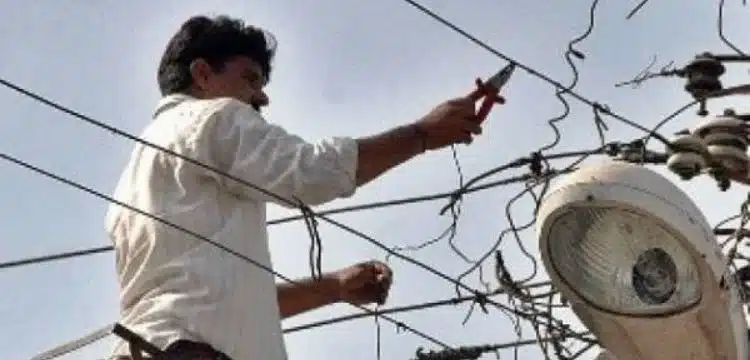[vc_row][vc_column][vc_column_text dp_text_size=”size-4″]A comprehensive intelligence report has revealed a deeply concerning state of power theft and staggering line losses worth billions of rupees within various Distribution Companies (DISCOs) across Pakistan. The report sheds light on a dire lack of modern equipment and training among the personnel responsible for combatting power theft, further exacerbating the issue.
Despite the presence of clip-on meters capable of detecting electricity amperage, they remain ineffective in identifying the electronic devices responsible for stealing power. The report also highlights the use of sophisticated software that enables remote control over modern meter chips. Shockingly, there are allegations that these chips have been covertly installed by private electricians and engineers, often with the involvement of DISCOs’ staff.
Also Read: Ex-Punjab MPAs Caught In Ongoing Electricity Theft Crackdown
The report uncovers a troubling pattern of deception employed by electricity thieves. These individuals use remote-controlled chips within meters, allowing them to reactivate meters when threats of raids arise. Additionally, CCTV surveillance closely monitors the movements of inspection teams, and, alarmingly, industry insiders are sometimes implicated in tipping off power thieves about impending raids.
Insufficient training compounds the issue, rendering staff incapable of uncovering hidden meter chips. DISCOs’ meters are occasionally swapped with dummy devices, confusing meter readers who record artificially low consumption. This practice results in significantly reduced bills for consumers, effectively robbing DISCOs of their rightful revenue.
While power theft is a significant contributor to line losses, the report also highlights infrastructural challenges, including excessively long 11KV lines, faulty conductors, damaged transformers, and the use of substandard materials. Overloaded transformers, often repaired by private workshops lacking critical maintenance capabilities, further contribute to the crisis.
Also Read: IMF To Announce Decision About Reducing Electricity Rates
Furthermore, a shortage of staff in subdivisions servicing tens of thousands of customers has fueled corruption. High fees for new connections and exorbitant charges for altering three-phase industrial meters raise serious questions about staff integrity and potential collusion.
Regrettably, union officials have been observed focusing on defending corruption rather than advocating for staff protection and equitable facilities. This leaves employees apprehensive and their legitimate demands unmet.
The report underscores the urgent need for systemic reforms to combat power theft and reduce line losses. It emphasizes the importance of transparency and staff training as essential components of addressing this pressing issue, which has significant implications for Pakistan’s energy sector and economy.[/vc_column_text][/vc_column][/vc_row]











